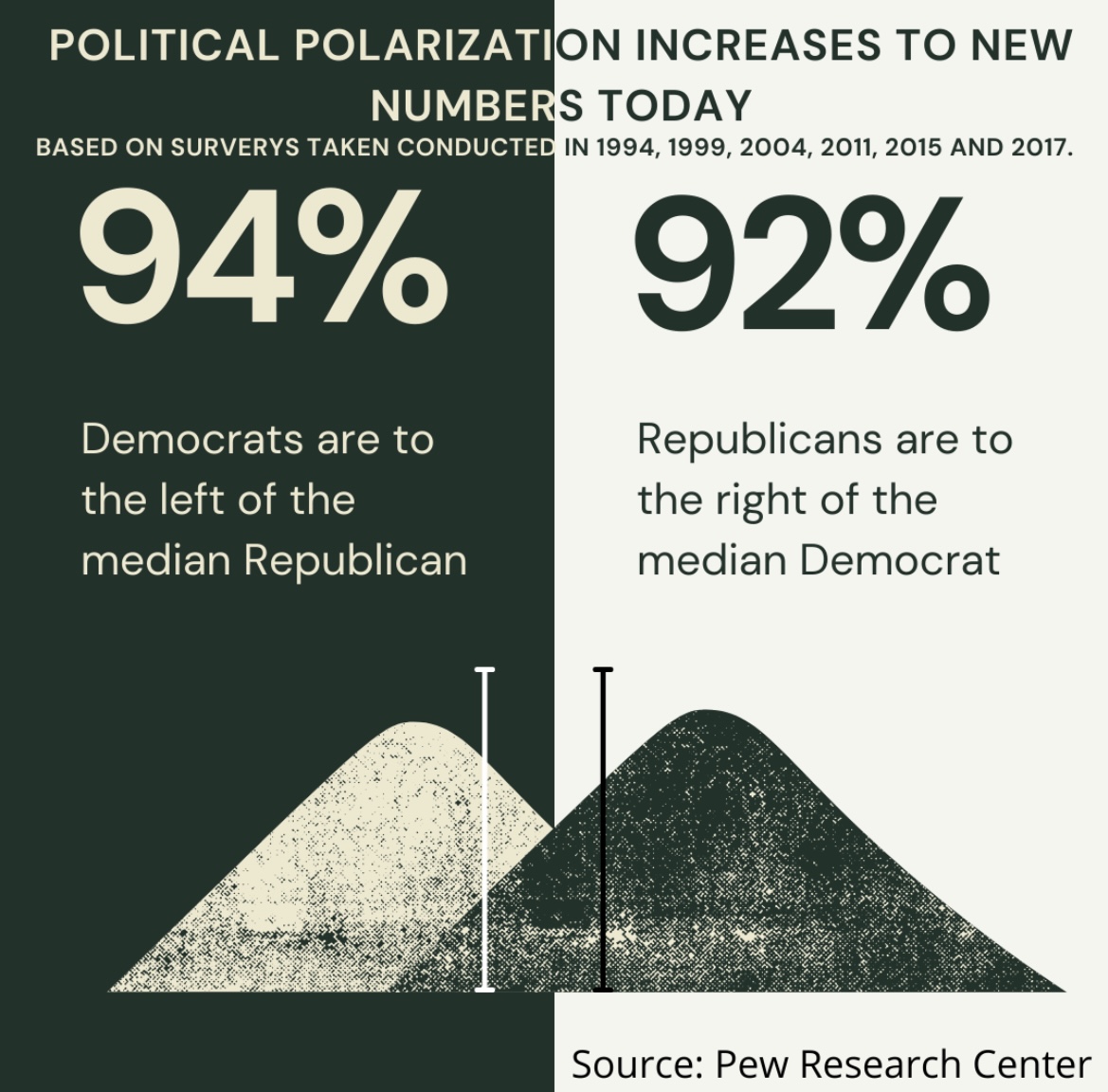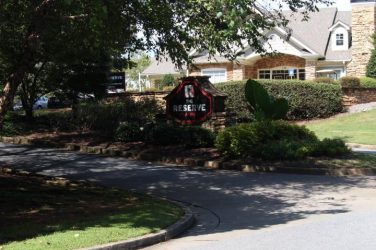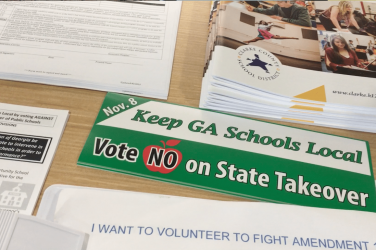As a new administration rolls into U.S. political office, the divide in political ideology of Americans is still very apparent. Political polarization is something that has affected the United States through several administrations. It has only increased over the past decades, but one organization believes that simple conversations might be able to bridge this gap.
According to Facing History, political polarization is broken down by the fact that the United States has two main political parties, the Republican and Democratic Party. “In the early 1990s, the two parties had more similar policy agendas than they do today. Over the last 25 years, the Democratic Party has moved more to the ‘left,’ while the Republican Party has moved more to the ‘right.’”
Why It’s Newsworthy: The Democratic and Republican parties have increasingly become more divided, which has caused non-controversial issues, such as wearing a mask, to become more political. By increasing the political divide in national and local politics, it has created a lot of violence and makes decisions more difficult.
Based on surveys taken from 1994 to 2017, the Pew Research Center found that “the share of Americans with ideologically consistent values has increased over this time and these political values also have become more strongly associated with partisanship.” The shifts to increased partisanship are also more exaggerated among politically engaged Americans.

Conversations Spark Solution
Many professionals and organizations believe political polarization can be reduced through conversations and informing the other side of their thoughts and feelings.
There have been national and local efforts to start conversations about politics to limit political polarization.
Bridge Alliance is a coalition of 100 organizations that are trying to add to this solution by nurturing “consistent and open communications between its members.”
“Maybe the 15% on the far left and the 15% on the far right are pretty stuck in their ways. I truly believe 60/70% of Americans really want to have a constructive dialogue,” said David Nevins, chairman of Bridge Alliance. “Our members have done a lot of events in various cities where citizens who don’t normally interact with each other are communicating and reaching a common ground.”
Local Effort to Create Conversations
While there are national efforts to promote dialogue to limit political polarization, there are also efforts in Northeast Georgia to do the same.
“Politics is one of those things where most of the time it’s ‘not here’, ‘not right now’, ‘there’s a time and a place for it’, but we’re rarely given a place to actually have meaningful discussions,” Michael Haug, co-founder of the Georgia College Political Society, said.
Georgia College Political Society is a non-partisan debate and discussion organization that brings students together to discuss political issues. Some of the issues the organization has discussed are criminal justice, foreign policy and the 2020 election.
Haug said he didn’t like the idea of a traditional political organization, centered around Republicans or Democrats in college. He said there wasn’t enough dialogue there, and they didn’t want to be in a group where everyone agreed.
“They so rarely go out and speak to the other side, and so there’s a demonization component sort of inherent in politics but also ramped up in our current politics. That’s definitely something we try to curve in our own way,” Haug said.
In an age of COVID-19, the group meets on Zoom and posts livestreams of their debates on Facebook.
“If we were going up to podiums, there would be a natural aspect to it, but in a way I sort of like that because especially with the polarization, it kind of humanizes things,” Haug said. “There’s a lot of laughing and agreement, and maybe if we were on podiums, the gloves might come off a little more.”
GCPS fellow James Robertson has participated in a few debates, and he said some of them are more of a debate and some are more of a discussion, depending on what the topic is.
GCPS’s first debate took place at the beginning of the fall semester and gathered about 300 views surrounding the topic of criminal justice. Since then, the group has hosted about 10 panels.
Robertson said the ones he’s interacted in have been productive and led to constructive conversations.
“We all kind of agreed that there were some structural problems. The biggest difference is how we get there. So it’s kind of nice to be debating not necessarily what is right to do at the end, but what’s the path to get there,” Robertson said.
Over the past several months, Haug said the administration is happy about the organization so far. GCPS has talked to several different chairpeople of different departments in Georgia College. Also, the political science department has been volunteering their personnel to do different crash courses with them, such as a recent discussion about foreign policy with international relations Assistant Professor Gennady Rudkevich.
That’s always great to see someone’s mind change in real time. It’s really special and something you don’t see everyday,” Haug said.
A limitation to hosting political conversations as a university organization is the lack of exposure. GCPS tries to combat that limitation by partnering with Georgia College’s TV and radio station and newspaper.
Although GPCS isn’t currently thinking about taking the organization to a national level, Haug said GCPS encourages people to establish their own nonpartisan organization after seeing the success created by the conversations happening across parties within their own organization.
Shania Shelton is a senior majoring in journalism in the Grady College of Journalism and Mass Communication at the University of Georgia.








Show Comments (1)
stephen w. hollomon
I don’t agree that those on the right have moved further right. Most of the extremism is obviously to the left. Formerly in controversial positions on American values such as two-parent families, stable households, the number of sexed there are, freedom of speech, personal responsibility and other core values are now vilified by the left. John Kennedy would be unable to recognize the current Democratic Party.